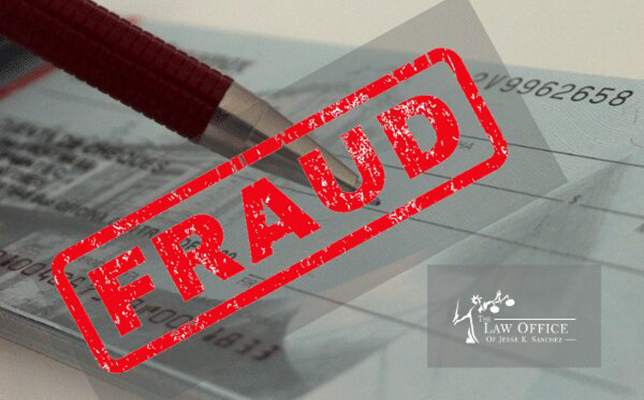If you’ve been charged with a form of check deception, such as check kiting fraud or check fraud you need to consult an Indiana check fraud lawyer. Check fraud is not a minor offense and can carry a potential prison sentence. Don’t go at it alone, call (317) 721-9858 or email: info@jksanchezlaw.com today.
What is Considered Check Fraud
Check fraud refers to the type of criminal act that involves writing checks in order to illegally acquire or borrow funds that do not exist within the account balance or account-holder’s legal ownership. Most methods involve taking advantage of the float to draw out these funds, this is called check kiting. Check kiting fraud is when a check is written on a bank account where there are not enough funds to cover the check. Check kiting fraud often occurs when the writer uses the check as a type of unauthorized credit. The different examples of check fraud or check scams include:
- Writing checks on a closed account
- Writing a bad check on a closed account
- Counterfeit Check
- Check Kiting or Bank Kiting
- Counterfeit Cashier Checks Scams
- Online Check Fraud
If you’ve committed check fraud you need to contact criminal justice attorney Jesse K. Sanchez immediately! Call (317) 721-9858 for help now!
IC § 35-43-5-5 Check Deception
(a) A person who knowingly or intentionally issues or delivers a check, a draft, or an order on a credit institution for the payment of or to acquire money or other property, knowing that it will not be paid or honored by the credit institution upon presentment in the usual course of business, commits check deception, a Class A misdemeanor. However, the offense is:
(1) a Level 6 felony if the amount of the check, draft, or order is at least seven hundred fifty dollars ($750) and less than fifty thousand dollars ($50,000); and
(2) a Level 5 felony if the amount of the check, draft, or order is at least fifty thousand dollars ($50,000)
(b) An unpaid and dishonored check, a draft, or an order that has the drawee’s refusal to pay and reason printed, stamped, or written on or attached to it constitutes prima facie evidence:
(1) that due presentment of it was made to the drawee for payment and dishonor thereof; and
(2) that it properly was dishonored for the reason stated.
(c) The fact that a person issued or delivered a check, a draft, or an order, payment of which was refused by the drawee, constitutes prima facie evidence that the person knew that it would not be paid or honored. In addition, evidence that a person had insufficient funds in or no account with a drawee credit institution constitutes prima facie evidence that the person knew that the check, draft, or order would not be paid or honored.
(d) The following two (2) items constitute prima facie evidence of the identity of the maker of a check, draft, or order if at the time of its acceptance they are obtained and recorded, either on the check, draft, or order itself or on file, by the payee:
(1) Name and residence, business, or mailing address of the maker.
(2) Motor vehicle operator’s license number, Social Security number, home telephone number, or place of employment of the maker.
(e) It is a defense under subsection (a) if a person who:
(1) has an account with a credit institution but does not have sufficient funds in that account; and
(2) issues or delivers a check, a draft, or an order for payment on that credit institution;
pays the payee or holder the amount due, together with protest fees and any service fee or charge, which may not exceed the greater of twenty-seven dollars and fifty cents ($27.50) or five percent (5%) (but not more than two hundred fifty dollars ($250)) of the amount due, that may be charged by the payee or holder, within ten (10) days after the date of mailing by the payee or holder of notice to the person that the check, draft, or order has not been paid by the credit institution.
Check Deception Defense
Just because a check was returned was NSF, that doesn’t necessarily mean that check deception occurred. There are a few check deception defenses that are available under IC 26-2-7-3. The defenses that most check fraud lawyers use to provide a defense for clients. Those defenses are as follows:
Notice sent in the manner set forth in IC 26-2-7-3 constitutes notice to the person that the check, draft, or order has not been paid by the credit institution. The payee or holder of a check, draft, or order that has been dishonored incurs no civil or criminal liability for sending notice under this subsection.
(f) A person does not commit a crime under subsection (a) when:
(1) the payee or holder knows that the person has insufficient funds to ensure payment or that the check, draft, or order is postdated; or
(2) insufficiency of funds or credit results from an adjustment to the person’s account by the credit institution without notice to the person.
Indiana Check Fraud Punishment and Check Fraud Penalties
In Indiana, the penalty for check fraud is a misdemeanor. Misdemeanors in Indiana are punishable by up to one year in jail with a fine. However, at certain levels, check fraud is considered as a Level 6 Felony, which is punishable by a minimum of six months to 2.5 years in prison with an included fine. Again, the charges for check fraud in Indiana are the following:
- A Class A Misdemeanor if the amount is up to $750.00
- A Level 6 Felony if the amount is at least $750.00 and less than $50,000.00
- A Level 5 Felony if the amount of the check is at least $50,000.00
Call Indiana Check Fraud Lawyer Jesse K. Sanchez
In Indiana, being charged with check fraud or check kiting fraud is no small matter. All forms of check fraud, bring stiff penalties along with court costs, fines and restitution that can destroy lives. Call affordable criminal defense attorney, Jesse K. Sanchez at (317) 721-9858 or email info@jksanchezlaw.com today!




